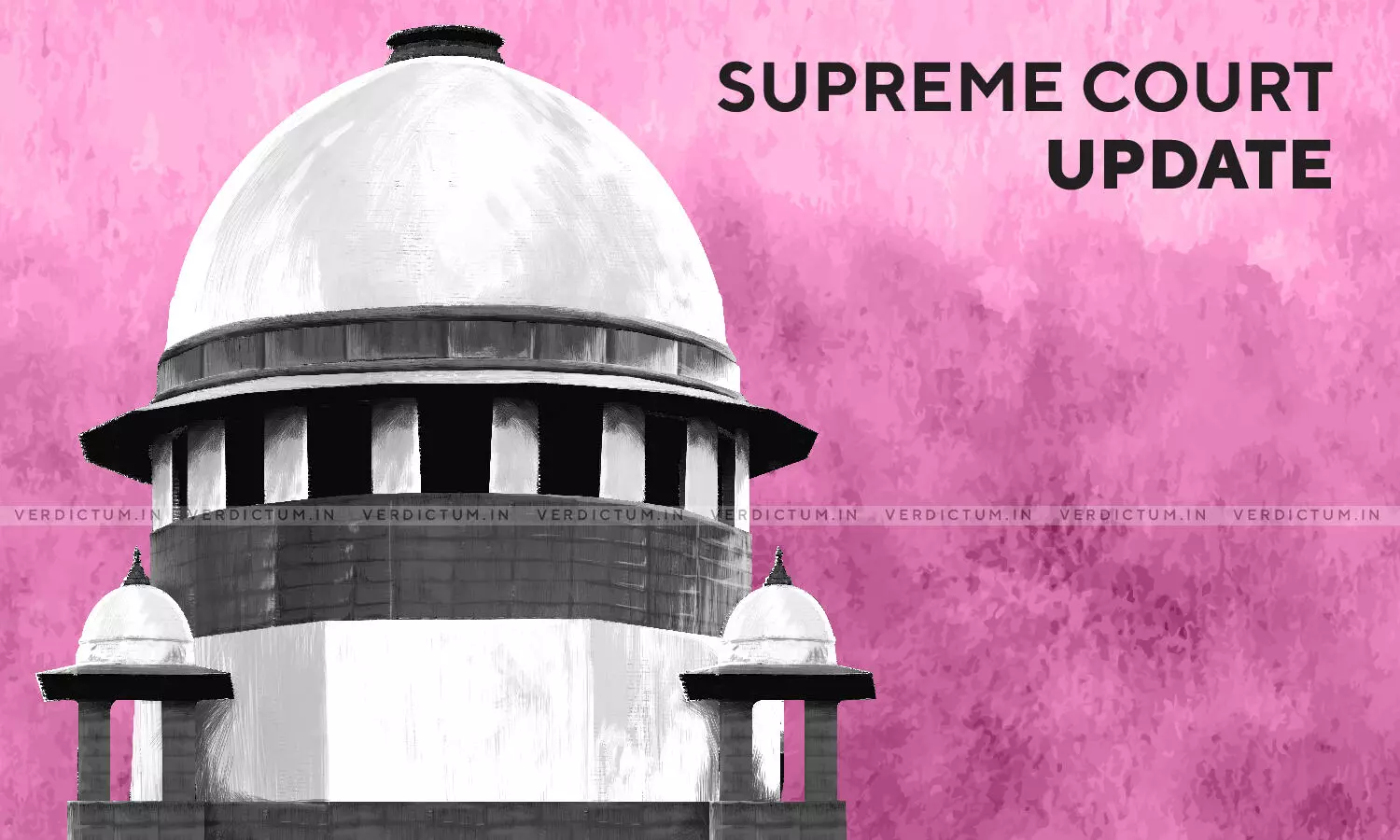
SC Urges Immediate Action On Gram Nyayalayas Implementation To Tackle Judicial Backlog
 |
|The Supreme Court today said establishing 'Gram Nyayalayas' would help in providing affordable and speedy justice to the citizens at their doorsteps and also reduce the huge pendency of cases in trial courts.
An Act passed by Parliament in 2008 provided for the setting up of Gram Nyayalayas at the grassroots level for providing access to justice to citizens and to ensure that opportunities for securing justice are not denied to anyone by reason of social, economic or other disabilities.
The apex court directed the chief secretaries of states and registrar generals of the high courts to file affidavits within six weeks pointing out the details regarding establishment and functioning of Gram Nyayalayas, including about infrastructure made available for them.
A bench of Justice B R Gavai and Justice K V Viswanathan passed the order after Advocate Prashant Bhushan, appearing for petitioner NGO National Federation of Societies for Fast Justice and others, said that 16 years after passing of the Act, only 264 Gram Nyayalayas were functional.
The plea was filed in the apex court in 2019 seeking a direction to the Centre and all states for taking steps to set up Gram Nyayalayas under the supervision of the Apex court.
It has said that sections 5 and 6 of the Gram Nyayalayas Act, 2008, provide that state government in consultation with the high court will appoint a 'Nyayadhikari' for each Gram Nyayalaya, who will be a person eligible to be appointed as a judicial magistrate of the first class.
During the hearing, Bhushan said the Act came into being in 2008 and a minimum of 6,000 Gram Nyayalayas should have been established by now.
The bench observed that in its view, establishment of Gram Nyayalayas, apart from providing affordable and speedy justice at doorsteps, "would also de-clog the huge pendency of matters pending before the trial courts".
It said the idea behind establishment of Gram Nyayalayas appears to be providing easy access to justice to the citizens.
The bench observed that right to justice includes the right to affordable justice.
"We direct the chief secretaries of all states and registrar generals of all high courts to file affidavits within six weeks pointing out details regarding establishment and functioning of Gram Nyayalayas in the respective states," it said.
It said the affidavits shall also place on record the details of infrastructure which are made available for the Gram Nyayalayas.
The apex court said before filing the affidavits, the state chief secretaries and registrar generals of high courts should have meeting and coordinate with regard to the policy for establishing Gram Nyayalayas in respective states.
Bhushan said, "The Act is of 2008. Sixteen years have gone by and we are faced with this pathetic situation where not even four per cent of Gram Nyayalayas have been established".
He referred to the apex court's January 29, 2020 order that had directed the states, which had not yet issued notifications for establishing Gram Nyayalayas, to do so within four weeks, and asked the high courts to expedite the process of consultation with state governments on this issue.
"What is the position now?" the bench asked, adding, "This is not adversarial".
When one of the advocates appearing in the matter raised the issue of remedies available in tribal areas, the bench observed, "Don't confine it to tribal areas only".
"We want to know the present status as on today," the bench said, and posted the matter for further hearing on September 11.
With PTI Inputs